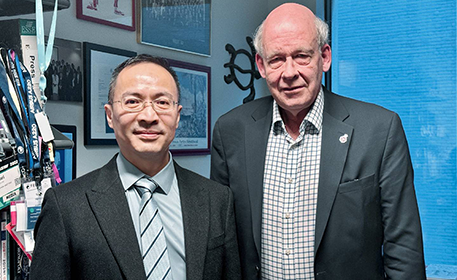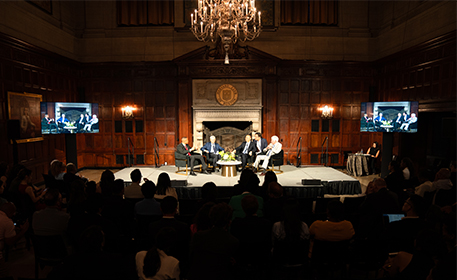Introduction
This is a classic case study, even if it seems a little dull and earnest. The essence of business is lasting trust. The real challenge of business management, however, is this: the long-lasting part and trust both seem simple - but bringing them together is very difficult.
The story starts with a milk powder scandal that swept the country ten years ago. The scandal plunged domestic milk powder brands into collective crisis. But as Chinese brands endured stagnating growth and foreign brands steamrolled the market, Feihe Dairy from Northeast China won back consumers' trust thanks to its foundation of first-class quality, and under the guidance of the right competitive breakthrough strategy.
Such is history: a heart-rending industry crisis captured in a few lines of words. And such is the fight back against seemingly unsurmountable odds: no matter how things get, how indiscernible the way ahead, when people look back in future, many will sigh to themselves and say: Those were hard years.
Cutting off all means of retreat
Below, we describe how Feihe Dairy, which had never let its standards slip but faced stagnating growth, teamed up with KMIND Competitive Strategy Consulting to resolve its competitive dilemma and set foot upon a new path of explosive growth.
It all started in 2015. That year, overseas milk power brands accounted for 80% of the market in China's cities. Some domestic brands, meanwhile, had retreated to third- or fourth-tier cities or the rural market. The situation did not look good.
Feihe Dairy, which was founded in Heilongjiang in 1962, also found itself in crisis.
"Hardest of all was that I felt I had given so much, things like the integrity of the business chain and quality guarantee. But consumers still saw us as domestically-produced milk powder; no matter how much effort we put in, we got nothing back, it had no effect." So said Feihe Dairy Chairman Leng Youbin at the "2018 Business Competition China Strategy" China Enterprise Competitiveness Forum.
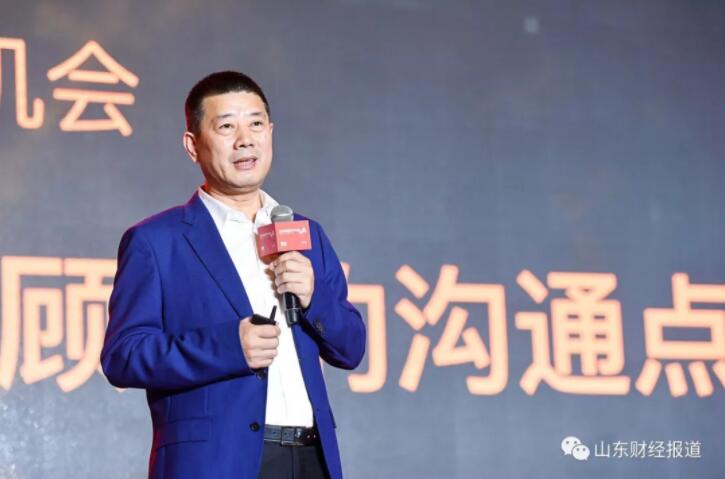
Leng Youbin, Chairman of Feihe Dairy
Feihe had been in contact with a number of well-known consulting companies, but was still struggling to find a solution to its problems. In the end, under the enthusiastic recommendation of a business associate, Leng Youbin contacted Xu Lianzheng, the President of KMIND Consulting.
"At the start, I thought there was no way China's milk powder industry could change the unfavorable situation, so I listened indifferently as he told the story of the industry. Just as I was about to take my leave, Leng said passionately, "China should have one or two brands that can stand up and compete with foreign brands. If we all just throw our hands up and surrender, then Chinese infant formula will basically cease to exist. Giving China's future to foreign milk powder companies not only casts shame on Chinese dairy companies, but is dangerous to China and its people." Recalling the early days of the KMIND's partnership with Feihe Dairy, Xu says that Leng's words inspired him to do something for the future of the nation. Chinese people's food bowl must be held firmly in their own hands.
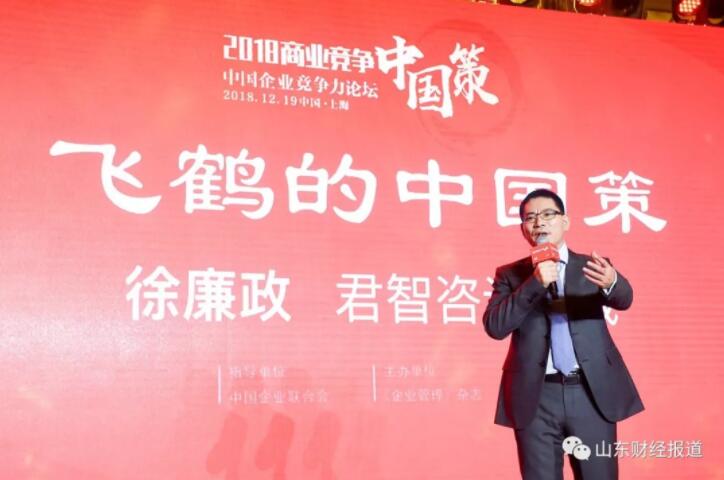
Xu Lianzheng, President of KMIND Consulting
Everyone in China is aware of the predicament that China's dairy industry faced since 2008. Yet in the country’s milk powder industry, Feihe Dairy was a company that could boast dependable quality and an unblemished record in product safety. The Latitude 47 golden milk source area they had been working on since 2001 had not been tainted. For decades, the company had painstakingly adhered to the highest standards of production quality in the industry - something that it still stood by.
As the saying goes, heaven rewards the faithful. If there is a reason why KMIND and Feihe joined hands, it is down to Feihe Dairy's steadfastness and integrity over the past 50 years. And the brand's great quality is why it was able to turn its predicament around.
Feihe staff always say that KMIND is Feihe's hero. But really, Feihe is its own hero, because of its sincerity towards its customers for all those years.
KMIND's project team realized that the key chokepoint was consumers' distrust of domestic milk powder. Feihe's main competition was from foreign brands, and it had to pit itself against these foreign brands as a domestic dairy brand. And to achieve this, Feihe had to stand up and be the first to redefine people’s perceptions of Chinese milk powder, breaking through the competitive blockade of foreign capital.
Any bystander would say this was hopeless.
But KMIND found a different breakthrough point. They believed that the key to Feihe escaping this dilemma lay in tapping the core values of the industry. They needed to find the weakness in the strength of foreign milk powder and take a firm hold of the core values of the industry. Through their research, the KMIND team identified two central values: "safety" and "suitability". Of these, "safety” had already been seized upon by the foreign brands; consumers no longer even looked at whether other brands were safe or not. But had the strategic opportunities of "suitability" been highlighted?
In history, success or defeat often comes down to one or two key choices.
Chinese people often say “each place has its own way of supporting its inhabitants”. The common sense behind "more suitable" resonated with consumers; "more suitable for the needs of Chinese babies" spoke to Chinese mothers and made them start choosing Chinese milk powder again.
Industry trends showed that as time went on, "safety" had already become a basic profit point of milk powder - but "suitability” was becoming increasingly important relative to "safety". Feihe had the most data about breastmilk in China and was the only company that had carried out clinical trials. It had the advantage in the quality of its milk source and the dissolvability of its milk powder.
Under the guidance of the right competitive strategy, the Feihe team sounded the horns of battle for the renaissance of a brand that belonged to the people of China, opening the way for rebuilding confidence in the country’s dairy industry. By researching the advantages and weaknesses of foreign brands to identify competitive opportunities, and by implanting the concept of "greater suitability" in the minds of consumers, they dislodged the foreign brands, complementing this with associated strategic marketing activities.
Finally, a breakthrough
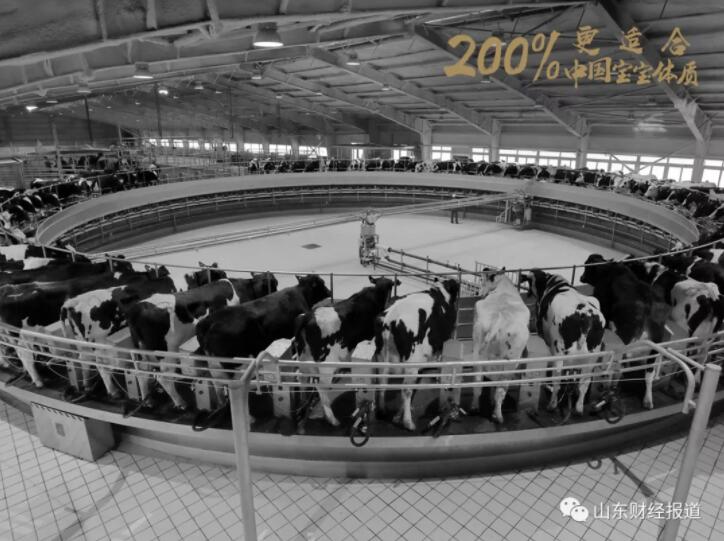
Once the competitive strategy had been established, KMIND looked at Feihe operations and brand awareness, and extracted two credentials that were aimed at potential customers and proved the "suitability" of Feihe milk powder: 53 years of development for the people of China, and two consecutive years of higher sales than foreign brands in 10 provinces. Based on this foundation, they created Feihe's core message:“Feihe Milk Powder: Better for China's Babies”.
Though it seemed unremarkable, this slogan contained 50 years of customer trust. Focusing on the physical requirements of Chinese babies and research into breast milk nutrition, Feihe established a breastmilk debase and the industry's first full industry chain. As Feihe continued to upgrade its R&D base, it teamed up with authoritative experts in China and the United States to improve its 'soft power', undertaking such national research projects as the national 863 Program and the Ministry of Science's Twelfth Five Year Project. These initiatives placed Feihe far head of competitors in the process of rebuilding consumer confidence in Chinese dairy brands.
More than simply providing Feihe with a consulting report, KMIND also provided Feihe with specific guidance on core aspects of its operations.
For example, in its products, Feihe drew on consumers' increasing focus on the high-end and pioneered the deployment of its ultra-premium AstroBaby range. At the service end, KMIND optimized visual presentation, highlighting Feihe's "more suitable" brand message; it also made the Feihe service system more extensive, introducing things like parent-child carnivals, nutritional education, mini shows, and moms' classes.
As for communication, in 2016, Feihe invested in highly influential TV media resources, including CCTV and HNTV’ program Happy Camp, while putting efforts in vertical media to effectively reach targeted populations. In 2017, it hosted the D20 Summit of the dairy industry and invited Zhang Ziyi as the ambassador, successfully attracted the attention of the whole society. On September 17, 2018, Feihe released the “fresher and more suitable” fresh milk powder standard system, which meets the demand for high-quality milk powder under the trend of consumption upgrading, promotes the domestic milk powder to seize the market leadership with the aim to facilitate large-scale pastures development, popularize independent control of milk sources, and promote the optimization and upgrading of the industrial structure and the high-quality development of China's dairy industry.
Now it seems that these strategic upgrades are smooth and rapid. But at the time, such fundamental transformation, as the result of dedicated work day by day, was by no means easy. And only those who have been engaged in national market management will know how complicated and difficult the process is.
Today, customer awareness has improved, the quality of customers has increased, there has been a significant increase in highly-educated and white-collar workers, a rapid increase in new customers, and remarkable growth in sales. Finally, on November 7, 2018, Feihe Dairy's annual operating income officially exceeded 10 billion yuan – making it the first billion-dollar enterprise in China's infant milk powder industry. Finally, there was a Chinese dairy brand that represented China, one that brought top-quality, nutritious premium milk powder to millions of babies.
The Feihe China strategy
A thousand years ago, Xin Qiji looked to the North China territories south of the Yangtze River and asked the immortal question: How many dynasties have risen and fallen in the course of long centuries; Of all the empire's heroes two alone could match the young king Sun Quan. When Feihe finally won back the trust of consumers on behalf of Chinese brands, perhaps Leng Youbin and Xu Lianzheng could finally raise a toast to achieving their original oath.

In the "2018 Business Competition China Strategy" forum, Leng Youbin shared four things he had learned over the past 30 years: Number one, milk power companies had to embrace a sense of mission in behalf of motherhood. If they were going to treat their consumers with love, they had to do so with utter sincerity. The rise and fall of China is inseparable from the health, nutrition and future of 17 million babies. Feihe bore the responsibility for China’s prosperity. As such, the quality core is the bottom line for enterprises, and great quality products are the foundation of Feihe's partnership with KMIND. Number two is seizing opportunities. The liberalization of the second- and even third-child policies have brought new growth opportunities in consumption. In particular, parents born after 1990 - who are willing, and able, to have a second child - have high demands toward product quality and high spending ability, which has brought new opportunities for the industry. Number three is that Feihe dared to invest. After finding the right competitive strategy, Feihe dared to invest. If the investment had been too small, then failure would be more likely. Investing in a brand offers the highest return and is the safest, surest option. Number four is that Feihe dared to streamline its product range.
Leng Youbin says, "Through the efforts of Feihe and the rest of the industry, over the next two to three years we're going to convince Chinese consumers that Chinese products are completely safe. China's brands are brands of the world - and they might even surpass the world's brands."
During the forum, Xu Lianzheng explained the "Feihe China strategy".
He said that the rise of Feihe has set an example to national enterprises. Xu said that the commercial warfare of today is very different from 10 years ago. We are living in an era of intense competition, and competitiveness in commercial warfare cannot be avoided. Feihe might have achieved periodic success, but there is still a long way to go before Chinese brands can truly take off. The era of 'big competition' is coming, and the first question facing entrepreneurs is how to resolve and deal with competition. The answer of this question is to get customers’ recognition. Feihe did the equivalent of redefining milk powder, setting a new standard in the dairy industry. Only by daring to set new standards, by taking a different path, can Chinese enterprises and brands find a different point of value and thus achieve a higher level of contact with consumers.
Xu Lianzheng believes that KMIND's strategic thinking system is characterized by three things. Number one: competition is dynamic. Consultancies used to provide companies with static advisory reports that were incapable of tackling companies' sustained competitive challenges. Number two: business management is systemic, not splintered and fragmented. Number three: companies must have a far-reaching vision for growth, whilst also taking into account the development of the industry, as they provide customers with value that is differentiated from competitors and assume their responsibilities to society. If they ignore the dynamic, systemic, and sustained nature of competition, and only focus on localized or current problems, they will have no way of resolving the competitive challenges they face.
"What makes KMIND different from other consulting companies is that we're with entrepreneurs and teams as they beat the competition over the long term. We're able to help companies carry on, ad infinitum, amid global business competition and take a permanent place on the world’s economic stage. This is what it means to truly solve companies' competitive challenges," says Xu Lianzheng.




